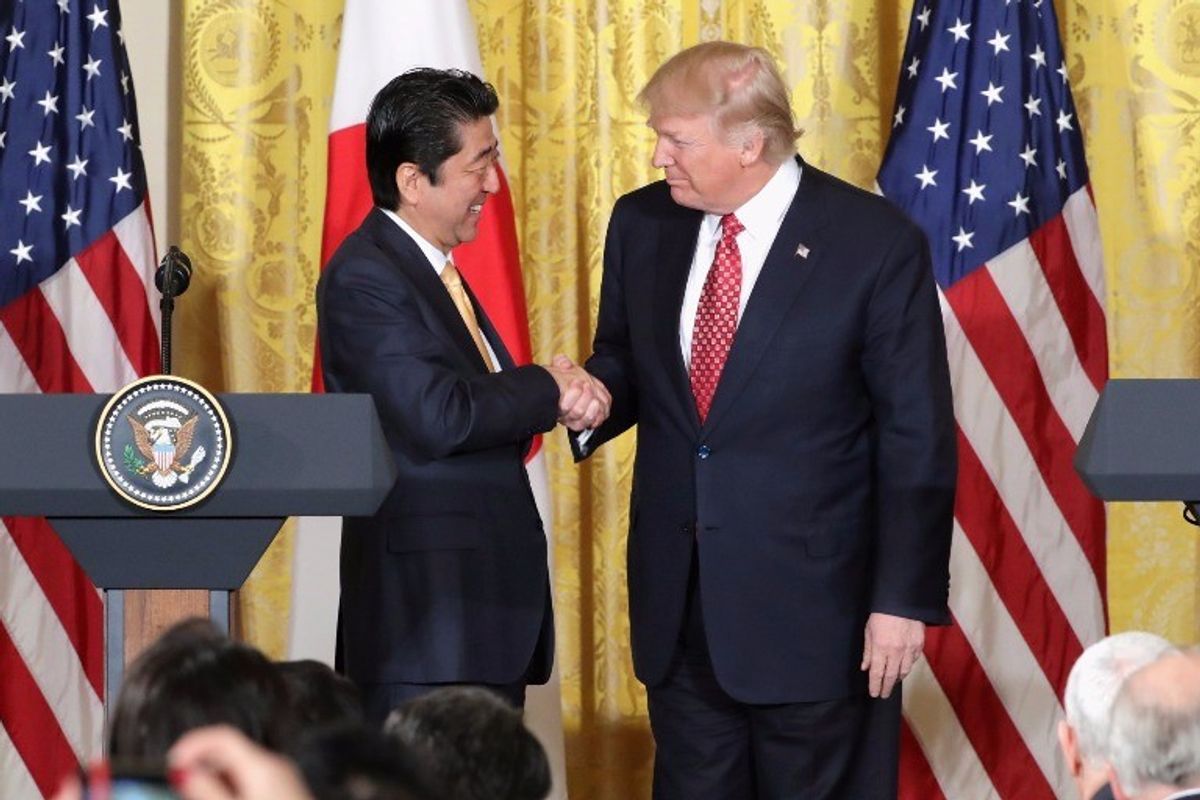Alongside his "Abenomics" economic reform package, Japanese Prime Minister Shinzo Abe and his government have sought to reform and expand the authority of the Japanese military. This effort has mainly focused on loosening the restrictions against offensive military action imposed by Article 9 of the Japanese Constitution. However, a related effort has worked in parallel to strengthen Japan's defense industry. In 2014 Abe lifted longstanding restrictions on Japanese arms exports. The Cipher Brief’s Fritz Lodge asked Vice President of the Daniel Morgan Graduate School and former U.S. diplomat in Japan Dr. Thomas Cynkin about what opportunities – and obstacles – lie ahead for Japan’s defense industry.
The Cipher Brief: Why have major Japanese defense contracts – such as the proposed $40 billion sale of Japanese submarines to Australia – fallen though since the relaxation of the arms export ban in 2014?
Thomas Cynkin: The defense industry is a hard market to break into and it’s highly competitive.
When you’re talking about arms transfers, what you’re talking about is a national security relationship. Some countries are just not ready for that with Japan, and it’s not clear that the Japanese know how to do this yet with new clients.
Being a major arms-exporting country typically means that you have a very well-rounded defense budget where you produce a lot of high-end items for yourself. And you make things that are attractive to other buyers. For example, you make a missile, and potential clients say, that’s a great missile, I would like to buy that. It’s a much harder sale to just come along and offer to make something to spec based on a new order.
If you look at a country like Israel, which I think exports around 80 percent of its defense production, it has taken a lot of time and effort for them to do that. If you look at the French and the British, who are also very competitive internationally, part of the reason for their success is they have well-rounded military forces and stable defense budgets. They have their own internal defense markets with high-end products that other countries see and want to acquire for themselves. That’s another factor that makes things more challenging for Japan’s nascent defense export industry.
Another obstacle is that consumer countries also know that these products will continue to be maintained and upgraded for the foreseeable future – the way U.S. B-52 bombers have been for a generation. When you buy arms, you’re not just buying the arms themselves, you’re buying into a reliable security and supply relationship.
The Japanese do not have a track record at this point, so when it came to competing against the French for the Australian submarine contract in 2014, despite the fact that Japanese submarines have some very important advantages on technical grounds, the Australians went for the French. That speaks to the fact that the French have more of a history of being reliable suppliers – and they have a more robust, full-fledged defense budget – so they were seen as more credible.
In Japan, Prime Minister Abe has been doing remarkable things, and they have relaxed the ban on arms exports, but this remains controversial. So the question is, can you guarantee that in five years somebody else won’t come into power and reverse some of these measures? If you want security and stability in your defense supply chain, that’s not a pleasant scenario to contemplate.
TCB: How would a thriving Japanese defense industry help or hurt U.S. policy in the Asia-Pacific region?
Cynkin: The Japanese have great technology, they have some great products, and the U.S. Department of Defense has been very eager to partner with them on missile defense, among other things. That is certainly an advantage. The more flexible Japan is in sharing and integrating weapons technology, the better for integrators like Lockheed Martin and Boeing. They are happy to get easier access to Japanese technology and components.
I would also add that it would probably be to the U.S. advantage ultimately to have a U.S.-Japan defense trade cooperation treaty, as per the UK and Australia. These treaties can simplify a lot of ITAR concerns – the International Traffic and Arms Regulation body. Having this would be a useful step for deeper U.S.-Japan military cooperation. I would bet that DoD would be very interested in formulating and implementing an agreement like that with Japan.
If you’re talking about arms sales, you’re talking about a national security relationship, and it’s not clear to me that countries in Asia are eager to proceed with a full-blown national security relationship with Japan at this point, given remaining historical tensions from World War II. There is still some sentiment in the region that might impede full-bore national security cooperation between Japan and some of these countries.
Additionally, in Southeast Asia, there are some countries that have their own indigenous arms industries – Singapore, Malaysia, Indonesia, etc. – and they will probably want to protect these industries, which could also complicate matters.
TCB: But if Japan can successfully build these relationships, it could help deepen national security ties with some of these countries?
Cynkin: Yes, it could. But, again, there are a lot of obstacles that make it challenging for the Japanese defense industry to proceed vigorously in the Asia-Pacific region.
First, there are several thousand Japanese companies involved in producing military hardware and components, but there’s only a few hundred that get more than half of their income from defense. If you look at the big ones like Mitsubishi Heavy Industries, in particular, defense often makes up less than 10 percent of their income, but if you look at major U.S. defense companies, defense makes up the majority of their income.
What does this tell you? Partly it tells you that Japanese companies are concerned about their image. They don’t necessarily want to be seen as defense businesses because it might damage their overall sales.
Additionally, they are afraid that people may take a hard look at their civilian products and decide they are dual-use, and thus should be subject to certain defense-related export and import restrictions. These are legitimate reasons to be concerned about being too heavily defense-oriented, but this dynamic complicates the expansion of the Japanese defense sector.
Another thing that impedes Japanese defense companies is that they tend to have very few executives with foreign language skills and foreign connections. The military divisions of these major contractors have very few managers with meaningful overseas experience.
Japan does have great technologies and very interesting products, which could ultimately be of considerable interest to potential clients. They have dual-use systems like shock proof laptops, components, and special materials. Looking ahead, they have and are developing weapons systems that could potentially be of interest to foreign purchasers, including the UH-X helicopter, the Type 10 main battle tank, the Takao-class cruiser, and a number of other systems.
All of these could be very interesting, and in the long term there are definitely some prospects, but in the short term this is a very competitive market.
TCB: What role do you think that China as an adversary plays in Japanese government thinking on this?
Cynkin: I think that China, but even more so the slow rolling crisis on the Korean Peninsula, has been a major stimulus to get Japan focused on its defense posture. I’m glad that Japan is doing this and I think it’s going to be critical in the coming years.
TCB: Do you think that popular opinion has or will come around to the idea of this kind of expanded defense posture pursued by the Abe government?
Cynkin: Every year we move away from the Second World War, we’ll see Japanese attitudes evolve in that direction. It’s simply a matter of generational shift.












